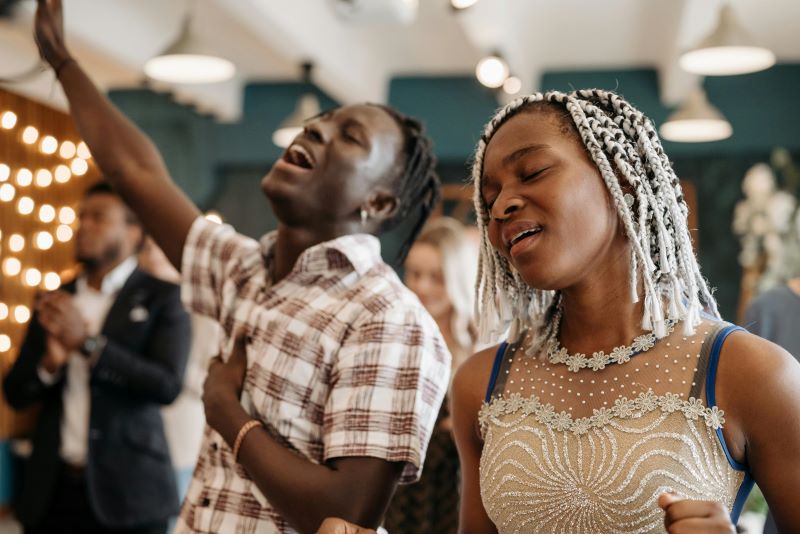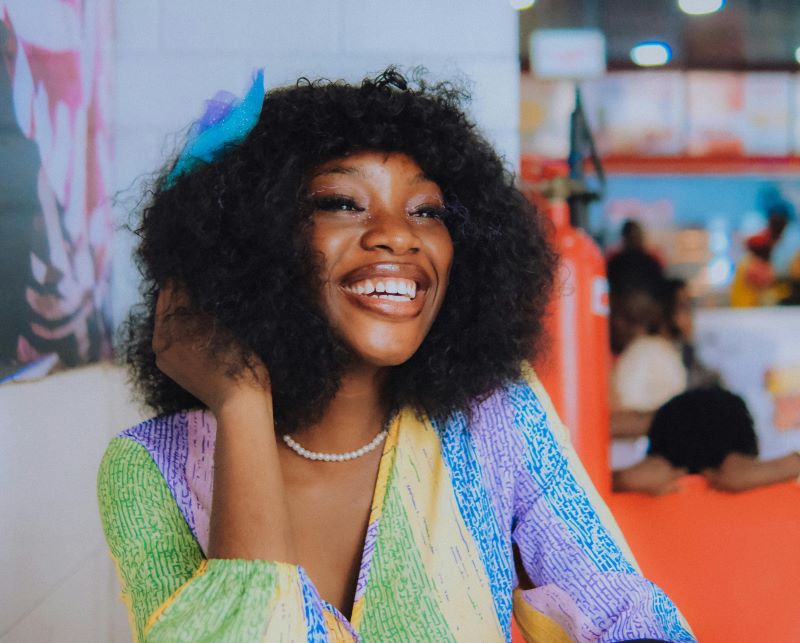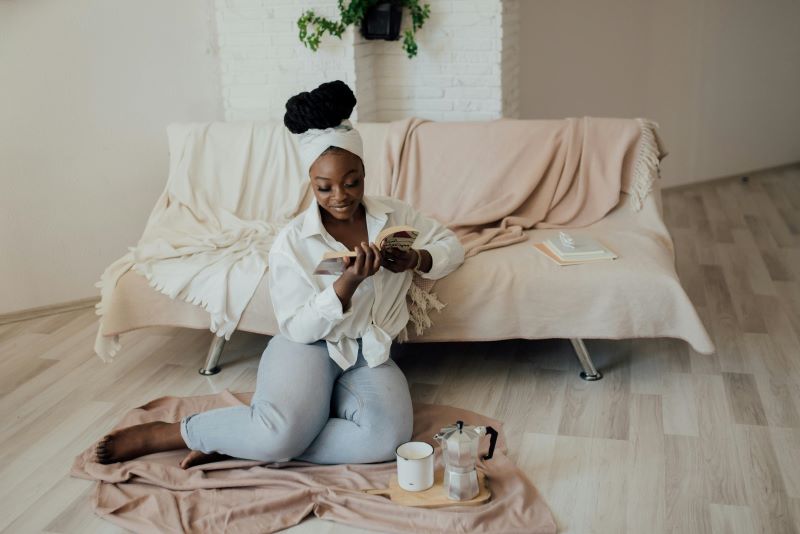Photo by Wavy_ revolution
If there’s one thing we’ve learned in recent years, it’s that mental health is just as important as physical health—and in some cases, even more so. While we all know the drill of hitting the gym and swapping burgers for salads come January, mental health resolutions often don’t make it onto our lists. That stops now. As we step into 2025, let’s pledge to reset our minds with five actionable, culturally relevant, research-backed resolutions that will help us thrive.
1. Set Boundaries, Like Your Sanity Depends on It (Because It Does)
Ah, boundaries. They’re like the gluten-free bread of self-care—everyone’s talking about them, but not everyone understands how to use them effectively. According to Dr. Nedra Glover Tawwab, a renowned therapist and author, setting boundaries is about preserving your mental and emotional energy. Think of it as creating a firewall for your brain.
- Why It Matters: Research shows that poor boundaries, especially at work, are linked to higher levels of burnout and anxiety. For African Americans, this can be particularly challenging due to systemic pressures and cultural expectations, such as the “strong Black person” stereotype.
- How to Start:
- At Work: Practice saying no to tasks outside your capacity. For example, instead of agreeing to yet another late-night email marathon, try: “I’m happy to tackle this tomorrow morning.” Advocate for your mental health in professional spaces.
- In Relationships: Identify where you feel resentment. Resentment is often a sign of violated boundaries. This could mean gently pushing back on family expectations, like always being the one to host or solve problems.
2. Detox from Doomscrolling: Your Brain Will Thank You
Raise your hand if your nightly routine involves scrolling through social media until your eyes sting. (Spoiler: That’s all of us.) For many in the African diaspora, social media can be both a lifeline to cultural connections and a source of stress due to exposure to traumatic events like police brutality videos. A study at the University of Pennsylvania found that high usage of Facebook, Snapchat, and Instagram increases rather than decreases feelings of loneliness. Conversely, the study found that reducing social media usage can make you feel less lonely and isolated and improve your overall well-being.
- Why It Matters: Social media isn’t inherently bad, but the constant barrage of bad news, curated perfection, and polarizing debates isn’t doing your mental health any favors. Psychologists call it the “doomscrolling spiral,” and it’s as harmful as it sounds.
- How to Start:
- Set Time Limits: Use apps like Forest or Screen Time to cap your scrolling sessions. Be intentional about stepping away from negative content.
- Follow Uplifting Accounts: Curate your feed to include mental health advocates, uplifting Black creatives, or accounts that spark joy and promote cultural pride.
- Schedule Offline Time: Designate tech-free zones, like your dining table or bedroom. For example, turn Sunday afternoons into “Soul Sundays” with offline activities like cooking, journaling, or reading.
3. Practice Gratitude (No, It’s Not Just a Buzzword)
Gratitude journals. Thankfulness apps. Hashtag #Blessed. It’s easy to dismiss gratitude as a trendy gimmick, but science says otherwise. Studies published in the journal Emotion reveal that gratitude practices can boost happiness and reduce symptoms of depression. Why? Gratitude shifts your focus from what’s wrong to what’s right.
For us, gratitude can also be a cultural practice tied to storytelling, spirituality, and resilience. It’s about honoring the past while appreciating the present.
- Why It Matters: Gratitude rewires your brain. Neuroimaging studies show that regular gratitude practice activates the medial prefrontal cortex, which is associated with learning and decision-making.
- How to Start:
- Keep It Simple: Write down three things you’re grateful for each day. It can be as profound as a supportive friend or as mundane as finding a good parking spot.
- Express It: Tell someone why you’re grateful for them. Bonus points for doing it face-to-face or incorporating oral traditions that celebrate community.
- Use Technology: Apps like Gratitude or HappyFeed can guide your practice.

Photo by Pavel Danilyuk
4. Embrace Movement—But Make It Joyful
Exercise is the OG mental health booster, but let’s be honest—not everyone is cut out for HIIT workouts or marathon training. And that’s okay. The key is finding a movement you enjoy and making it culturally meaningful.
- Why It Matters: Exercise increases the production of endorphins, your brain’s feel-good chemicals. A study published in JAMA Psychiatry found that people who exercised regularly were 25% less likely to develop depression.
- How to Start:
- Explore Cultural Dance: Try Afrobeat dance workouts, salsa, or traditional African dance classes that connect you to your roots.
- Ditch the All-or-Nothing Mentality: Ten minutes of dancing in your kitchen counts as exercise. Pair it with your favorite playlist of African or Caribbean tunes.
- Buddy Up: Join a class or recruit a friend. Accountability makes it easier to stick to a routine.
Movement isn’t about burning calories; it’s about nurturing your mental and physical health. Find what makes you smile and move your body accordingly.
5. Prioritize Rest, Not Just Sleep
Sleep is the Beyoncé of rest—it gets all the attention. But rest is multifaceted. According to Dr. Saundra Dalton-Smith, there are seven types of rest: physical, mental, emotional, social, sensory, creative, and spiritual. If you’re always tired, you might need a different kind of rest.
For African Americans, rest can also be an act of resistance. In a world that often glorifies hustle culture, prioritizing rest can be revolutionary.
- Why It Matters: Chronic exhaustion isn’t just about sleep deprivation; it’s about unmet rest needs. For instance, introverts may feel socially drained, while creatives might need mental stimulation.
- How to Start:
- Audit Your Energy: Identify which types of rest you’re missing. For example, spiritual rest could involve reconnecting with practices like prayer or meditation.
- Schedule Micro-Rests: Take a 10-minute break to close your eyes (sensory rest) or call a supportive friend (social rest). Explore rituals like lighting candles or listening to soothing music.
- Protect Your Sleep: Create a bedtime ritual that signals your brain it’s time to unwind.
Seek Professional Help When Needed
Whether you’re dealing with trauma, navigating a life transition, or just want to improve your coping skills, therapy can be transformative. For African Americans, finding culturally competent therapists can enhance the therapeutic experience.
- Why It Matters: A study in The Lancet Psychiatry found that talk therapy combined with other interventions can significantly improve mental health outcomes.
- How to Start:
- Explore Options: From traditional therapy to apps like Ayana or Therapy for Black Girls, find a format that works for you.
- Budget for It: Think of therapy as an investment in your well-being.
- Break the Stigma: Remember, seeking help is a sign of strength, not weakness.
Let 2025 Be the Year of You
These resolutions aren’t quick fixes but lifelong habits that will help you thrive. For Africans and African Americans, mental health practices that honor cultural traditions and address unique challenges can make all the difference. So, let’s step into 2025 with intention, resilience, and a commitment to prioritizing our mental health. Because you deserve to thrive—not just survive.

Anand Subramanian is a freelance photographer and content writer based out of Tamil Nadu, India. Having a background in Engineering always made him curious about life on the other side of the spectrum. He leapt forward towards the Photography life and never looked back. Specializing in Documentary and Portrait photography gave him an up-close and personal view into the complexities of human beings and those experiences helped him branch out from visual to words. Today he is mentoring passionate photographers and writing about the different dimensions of the art world.





